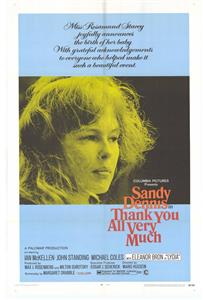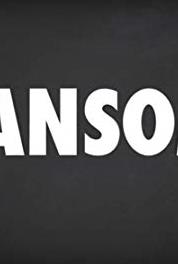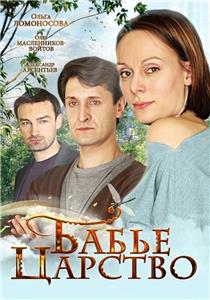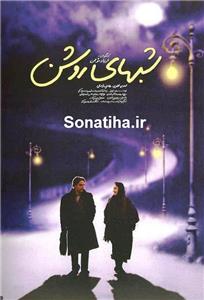A Touch of Love (1969) Online

Rosamund (Sandy Dennis), a young 'bookish' girl in London society, spends her days studying for a doctorate in the British Museum and her nights avoiding the sexual attention of the men in her life. But one day, all that changes. Through a friend, she is introduced to rising TV newsreader/announcer George (Ian McKellen) and after a further chance meeting and a tumble on the sofa, she finds herself pregnant from her first sexual encounter. After a failed attempt at self-induced abortion, she resolves to have the child, leaving her on a solitary and at times discouraging path through pregnancy and into single motherhood, aided only by her close friend Lydia (Eleanor Bron).
| Cast overview: | |||
| Sandy Dennis | - | Rosamund | |
| Ian McKellen | - | George | |
| Michael Coles | - | Joe | |
| John Standing | - | Roger | |
| Peggy Thorpe-Bates | - | Mrs. Stacey | |
| Kenneth Benda | - | Mr. Stacey | |
| Deborah Stanford | - | Beatrice | |
| Roger Hammond | - | Mike | |
| Eleanor Bron | - | Lydia | |
| Margaret Tyzack | - | Sister Bennett | |
| Maurice Denham | - | Dr. Prothero | |
| Rachel Kempson | - | Sister Harvey |
Margaret Drabble's original novel was titled "The Millstone", an ironic reference to the baby the unmarried heroine finds she's expecting, while trying to complete her doctorate. This was the working title for this film, but it was deemed unsuitable and not commercial. In America, the film was released as "Thank You All Very Much", the sarcastic remark the heroine makes to a group of student doctors after they have studied her case at length, without ever speaking to her, or making any acknowledgment of her as a person.
An iconic London landmark, the Post Office Tower (now known as the BT Tower) is regularly seen as a backdrop during the external scenes. Its in-vision usage was somewhat contrary to the then wishes of the prevailing UK legislature. This was due to the Post Office Tower being classified as a building or structure significantly crucial to the reliable and fundamental operation of the telecommunications systems of the United Kingdom. Indeed, it was deemed so critical, its inclusion was banned on all maps, atlases and similar of its day as seen in this 1969 movie.
Opening credits: All characters and events in this film are fictitious. Any similarity to actual events, or persons, living or dead, is purely coincidental.





User reviews